Role Playing: Brian Parry says he summoned courage before wit as George in ‘Virginia Woolf’
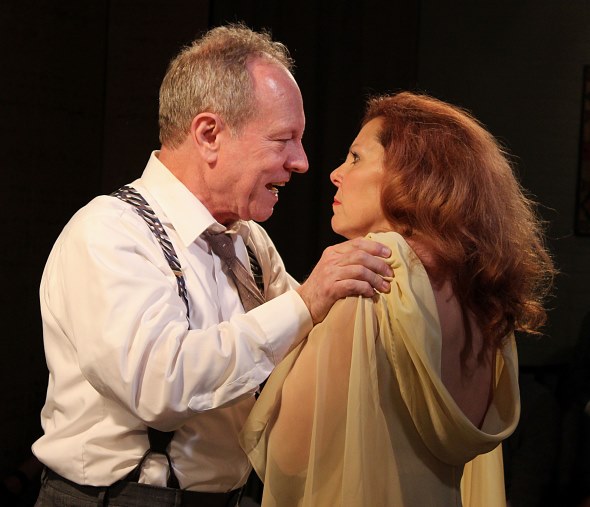 Interview: Veteran Redtwist Theatre ensemble member says tackling Edward Albee’s high-tension play in a very small space has been a perilous thrill. Extended through Oct. 31.
Interview: Veteran Redtwist Theatre ensemble member says tackling Edward Albee’s high-tension play in a very small space has been a perilous thrill. Extended through Oct. 31.
By Lawrence B. Johnson
In the thimble-size playing space of Redtwist Theatre, Brian Parry is reminded every night of the plain truth in playwright Edward Albee’s admonition to any actor who takes on the role of George, the battle-worn husband and semi-satisfied college professor in “Who’s Afraid of Virginia Woolf?” – that it will be the workout of a lifetime.
“Albee was referring to the sheer quantity and intricacy of language,” says Parry, whose performance is a peak experience in Chicago’s autumn theater season. “And honestly, I wasn’t sure I was going to make it. It wasn’t until the first preview that I felt I really had it.”
George’s role is huge. Not only does it abound in “words, words, words,” as Hamlet might have put it, but every one of those words also bears a weight and import worthy of Shakespeare.
“Dealing with a play that is held up, and rightly so, as one of the modern American masterpieces is scary,” says Parry, a veteran of many leading parts performed on Redtwist’s intimate stage. “If you’ve going to have the audacity to produce it, you’d better have something interesting to say within it. That was the scary part: Did we have that?”
In Albee’s play, George, a professor of history at a small New England college, is married to Martha, whose father is president of the school. It’s a prickly marriage, to put it mildly. Martha likes to remind George that he’s not head of the history department, that he’s pretty much a mediocrity, not to say a contented failure. For his part, George gets along by deflecting Martha’s barbs and, not infrequently, striking back with disarming, rapier wit and brilliance.
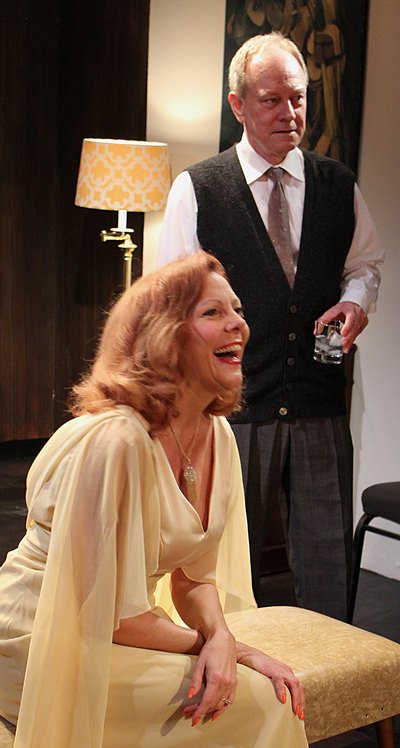 All this we see played out as the couple comes home from a welcoming party for new faculty and Martha (played by Jacqueline Grandt) hits George with an announcement that, late as the hour may be, they’re going to have post-party guests: a young professor and his wife freshly arrived on campus. As this little soirée spins into an early matinee, a steady stream of booze unearths some closely held secrets in both couples and George forces Martha to accept a hard, purifying truth about their marriage.
All this we see played out as the couple comes home from a welcoming party for new faculty and Martha (played by Jacqueline Grandt) hits George with an announcement that, late as the hour may be, they’re going to have post-party guests: a young professor and his wife freshly arrived on campus. As this little soirée spins into an early matinee, a steady stream of booze unearths some closely held secrets in both couples and George forces Martha to accept a hard, purifying truth about their marriage.
“You start with what’s there and work backwards,” says Parry, explaining how he and Grandt and director Jason Gerace tried to make sense of a marriage that seems deeply contentious and yet also exhibits its own peculiar equilibrium.
“We all agreed on one thing: George and Martha love the heck out of each other.”
And while George might appear to be the object of Martha’s casual disdain – a man on the defensive, almost abjectly deferential – Parry points out that in fact George is very much in control and simply picks the spots where he will resist or indeed draw the line.
“George is a very smart man with high principles and he doesn’t brook hypocrisy,” Parry says. “He’s not ambitious. He never wanted to succeed Martha’s daddy as president of the college, but he has a sense of accomplishment and he’s comfortable with himself up to a point. He also does what he can to make Martha happy.
“He accommodates Martha as far as he can. When they walk in after the party and she starts to talk about some Bette Davis movie, he goes along with it thinking she’ll run out of steam on that. Then she drops the news about the guests who are about to arrive, and he deals with that. That’s his modus operandi. He may not be crazy about an idea, but he won’t resist when he’s got nothing to gain by putting his foot down.”
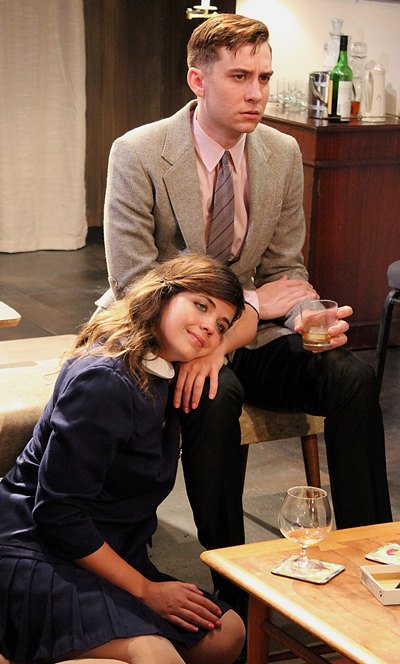 Enter the kids, the newbies on campus, the biology teacher Nick (Stephen Cefalu, Jr.), handsome and trim (qualities not lost on Martha), and his demure wife Honey (Elizabeth Argus). It’s going to be a long night for George.
Enter the kids, the newbies on campus, the biology teacher Nick (Stephen Cefalu, Jr.), handsome and trim (qualities not lost on Martha), and his demure wife Honey (Elizabeth Argus). It’s going to be a long night for George.
“He’s willing to be a decent host, but these people are not stimulating at all,” says Parry. “And prolonged exposure to them becomes more and more intolerable. George is appalled by Honey’s naïveté and her eagerness to please. She seems so desperate to be liked. Where’s all that need coming from, and why isn’t it being satisfied by her hubby? And he can’t bear Nick’s hypocrisy – this man whose marriage hangs on a false pregnancy and the money her father the preacher collected by fleecing the faithful.”
But the guests, whom George mercilessly skewers with their own revealed history, are not George’s ultimate opponent or concern in these wee-hour wars. That role is reserved for Martha, who breaks a sacred rule – not to be spilled here – of their private excursions into vitriol and thereby forces George’s hand.
“At that point,” says Parry, “George has come to realize there has to be a major change, a cleansing. Albee calls this last part of the play ‘The Exorcism,’ and it is nothing less than a struggle for Martha’s soul. George tells her, in effect, that from now on we’re going to deal with each other as we are, that we’re no longer going to drag this baggage around like Marley’s ghost.”
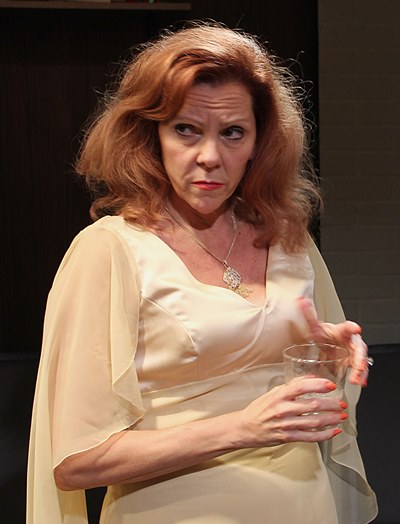 These are scenes of withering intensity, despite a generous portion of wry humor, and playing them to an audience that’s essentially sitting in George and Martha’s living room is no small challenge, Parry admits.
These are scenes of withering intensity, despite a generous portion of wry humor, and playing them to an audience that’s essentially sitting in George and Martha’s living room is no small challenge, Parry admits.
“The trick is not allowing myself to be distracted by an audience whose reaction is immediate and audible,” he says, “but at the same time to be aware that this person sitting two feet away has his legs sticking out. The situation also requires awareness and cooperation by the audience, and that’s what we’ve seen. For actors to work in such close quarters is thrilling.”
And not a little harrowing. “Jacqueline and I have worked together for close to 10 years,” says Parry, “and still after every performance of this play we have to hug each other to make sure we’re OK. On that small stage, we’ve had to let it fly and to trust each other through moments of great tension and conflict. Afterward we have to remind ourselves that it was just those two characters.”
Related Links:
Review of “Who’s Afraid of Virginia Woolf?” at Redtwist Theatre: Read it at ChicagoOntheAisle.com
More Role Playing Interviews:
- Tracy Michelle Arnold debunks madness as force that drives Blanche DuBois
- Christopher Donahue, as Ahab, finds sea’s depth in sadness of a vengeful soul
- Lance Baker embodies ennui, despair of fugitive Jews in ‘Diary of Anne Frank’
- Francis Guinan embraces conflict of father who fled from grim truth in ‘The Herd’
- Sophia Menendian reached back (but not far) as plucky Armenian refugee of 15
- Lindsey Gavel’s distressed Masha, in ‘Three Sisters,’ began with a touch of cheer
- Hollis Resnik felt personal bond with zealous, skeptical scholar in ‘Good Book’
- A.C. Smith is ready undertaker, lord of diner world in ‘Two Trains Running’
- Lia D. Mortensen’s intense portrait of a mentally failing scientist holds mirror to life
- Siobhan Redmond sees re-formed Lady Macbeth as valiant queen in ‘Dunsinane’
- Eileen Niccolai harnessed a storm of emotions to create spark in Williams’ Serafina
- Steve Haggard, aiming at reality, strikes raw core of grieving man in ‘Martyr’
- Shannon Cochran found partners aplenty in sardonic, twice-told ‘Dance of Death’
- Natalie West scaled back comedy to nail laughs, touch hearts in ‘Mud Blue Sky’
- Dave Belden, actor and violinist, adjusted pitch for ‘Charles Ives Take Me Home’
- Joseph Wiens starts at full throttle to convey alienation of ‘Look Back in Anger’
- Shane Kenyon touches charm and hurt of lovable loser in Steep’s ‘If There Is’
- Ramón Camín sees working class values in Arthur Miller’s tragic Eddie Carbone
- Hillary Marren’s charming, rapping witch in ‘Woods’ shapred by hard work, free play
- Mary Beth Fisher embraces both hope, despair of social worker in ‘Luna Gale’
- Brad Armacost switched brothers to do blind, boozy character in ‘The Seafarer’
- Karen Woditsch shapes vowels, flings arms to perfect portrait of Julia Child
- Ora Jones had to find her way into Katherine’s frayed world in ‘Henry VIII’
- Kareem Bandealy tapped roots, hit books for form warlord in ‘Blood and Gifts’
- Eva Barr explored two personas of Alzheimer’s victim to find center of ‘Alice’
- Darrell W. Cox sees theater’s core in closed-off teacher of ‘Burning Boy’
- Chaon Cross turned Court stage into a romper room finding answers in ‘Proof’
- Dion Johnstone turned outsider Antony to bloody purpose in ‘Julius Caesar’
- Noir films gave Justine Turner model for shadowy dame in ‘Dreadful Night’
- Anish Jethmalani plumbs agony of good man battling demons in ‘Bengal Tiger’
- Gary Perez channels his Harlem youth as quiet, unflinching Julio in ‘The Hat’
- Kamal Angelo Bolden sharpened dramatic combinations to play ‘The Opponent’
- In wheelchair, Jacqueline Grandt explores paralysis of neglect in ‘Broken Glass’
- James Ridge thrives in cold skin of Shakespeare’s smiling serpent, Richard III
- Stephen Ouimette brews an Irish tippler with a glassful of illusions in ‘Iceman’
- Ian Barford revels in the wiliness of an ambivalent rebel in Doctorow’s ‘March’
- Chuck Spencer flashes a badge of moral courage in Arthur Miller’s ‘The Price’
- Rebecca Finnegan finds lyrical heart of a lonely woman in ‘A Catered Affair’
- Bill Norris pulled the seedy bum in ‘The Caretaker” from a place within himself
- Diane D’Aquila creates a twice regal portrait as lover and monarch in ‘Elizabeth Rex’
- Dean Evans, in clown costume, enters the darkness of ‘Burning Bluebeard’
- Dan Waller wields a personal brush as uneasy genius of ‘Pitmen Painters’
- City boy Michael Stegall ropes wild cowboy in Raven Theatre’s ‘Bus Stop‘
- Brent Barrett is glad he joined ‘Follies’ as that womanizing, empty cad Ben
- Sadieh Rifai zips among seven characters in one-woman “Amish Project”
- Kirsten Fitzgerald inhabits sorrow, surfs the laughs in ‘Clybourne Park’
- Janet Ulrich Brooks portrays a Russian arms negotiator in ‘A Walk in the Woods’
Tags: Brian Parry, Edward Albee, Elizabeth Argus, Jacqueline Grandt, Jason Gerace, Redtwist Theatre, Stephen Cefalu Jr., Who's Afraid of Virginia Woolf

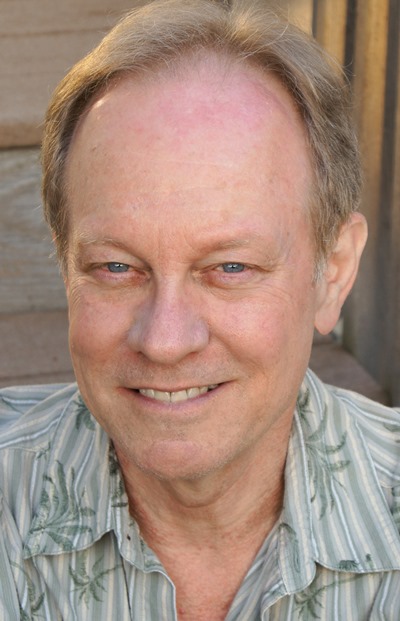

No Comment »
3 Pingbacks »
[…] Brian Parry says he summoned courage before wit as George in ‘Virginia Woolf’ […]
[…] Brian Parry says he summoned courage before wit as George in ‘Virginia Woolf’: Read the interview at Chicago On the Aisle […]